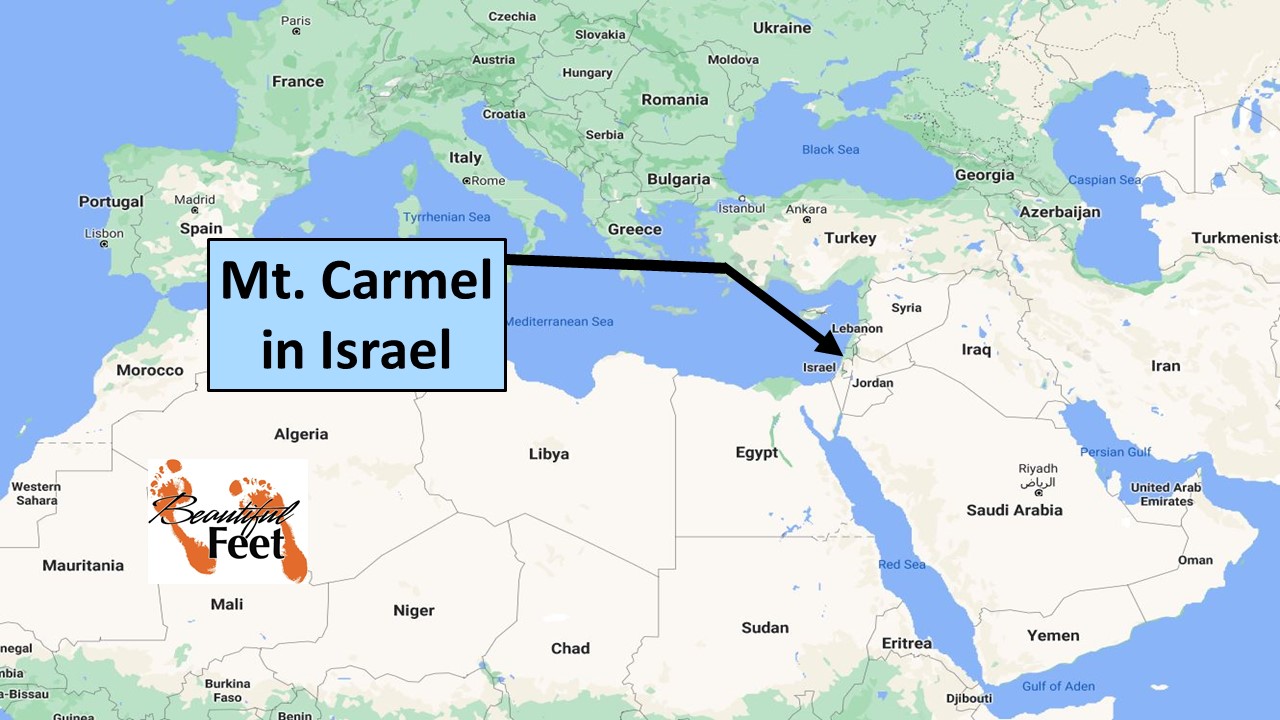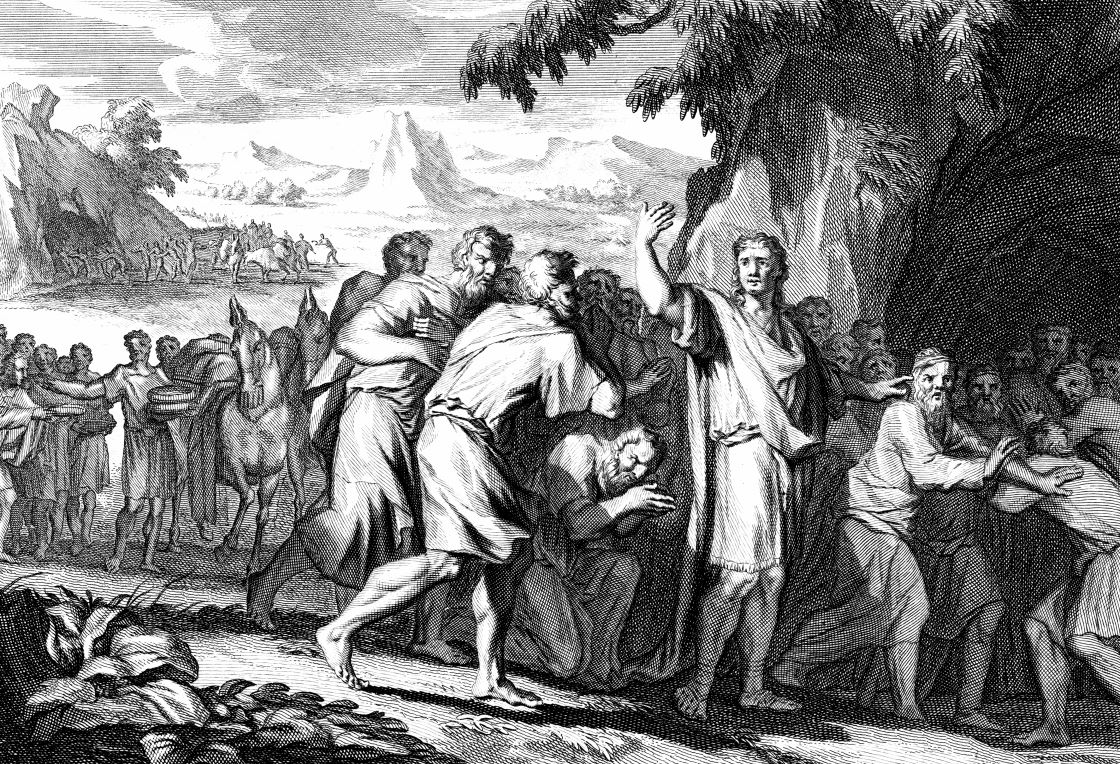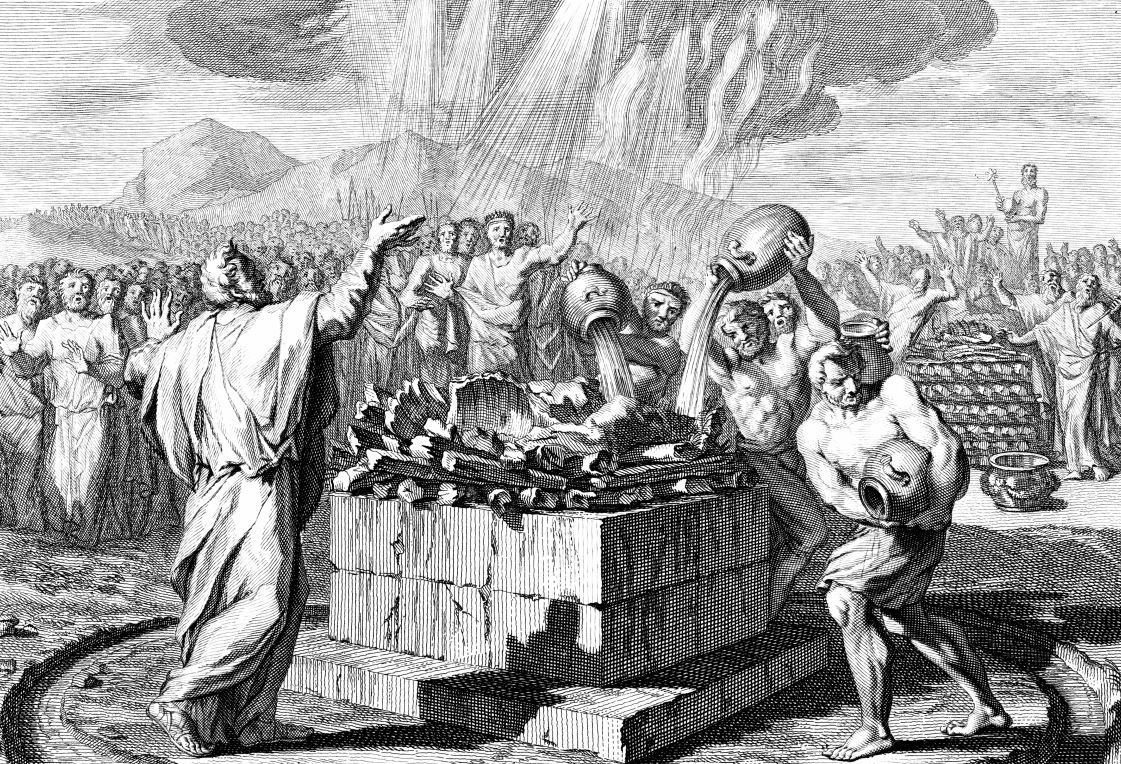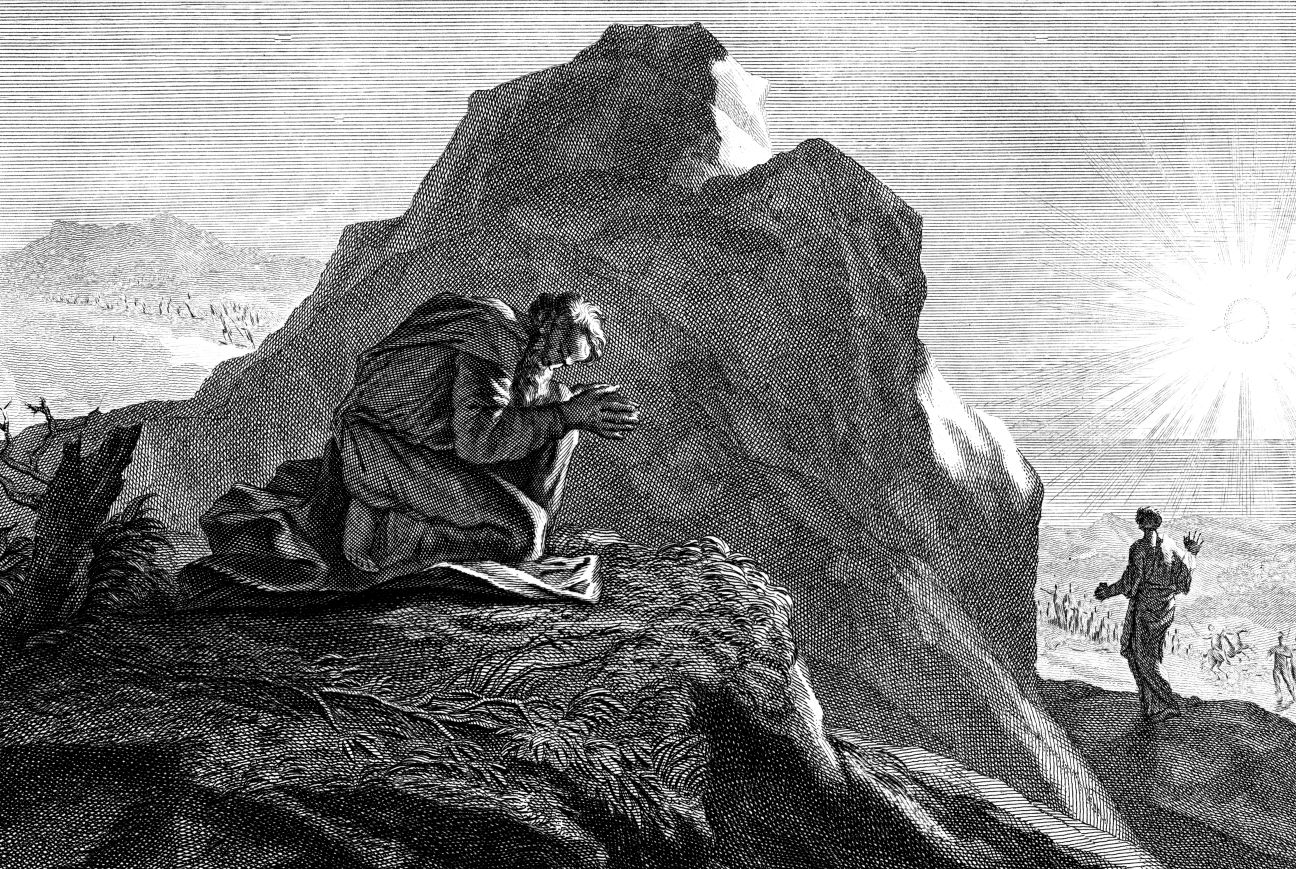

Condition of the Nation
Israel’s glory days occurred under David and Solomon, and following Solomon’s horrific failures, the nation was divided and went into decline from which it never fully recovered.
Solomon built such shrines for all his foreign wives to use for burning incense and sacrificing to their gods. The Lord was very angry with Solomon, for his heart had turned away from the Lord, the God of Israel, who had appeared to him twice. He had warned Solomon specifically about worshiping other gods, but Solomon did not listen to the Lord’s command. So now the Lord said to him, “Since you have not kept my covenant and have disobeyed my decrees, I will surely tear the kingdom away from you and give it to one of your servants” (1 Kings 11:8-10).
It was in 945 B.C. that Solomon’s son, King Rehoboam, witnessed the division of the nation. The Kingdom of Judah in the south had its central government in Jerusalem, and the political capital of the Kingdom of Israel in the north was the town of Samaria.
The revival focused on in this account occurred in the Northern Kingdom during the reign of King Ahab, with the foremost prophet being Elijah.
By 879 B.C., at the time of this revival, the northern kingdom had had seven kings, all of whom increased in their levels of wickedness and rebellion against God.
1. Jeroboam—“did not turn from his evil ways” (1 Kings 13:33-34).
2. Nadab—“he did what was evil in the sight of the Lord” (1 Kings 15:26).
3. Baasha—“he did what was evil in the Lord’s sight” (1 Kings 15:34).
4. Elah—“This happened because of all the sins Baasha and his son Elah had committed (1 Kings 16:13).
5. Zimri—“For he, too, had done what was evil in the Lord’s sight” (1 Kings 16:19).
6. Omri—“did what was evil in the Lord’s sight, even more than any of the kings before him” (1 Kings 16:25).
7. Ahab—”He did more to provoke the anger of the Lord, the God of Israel, than any of the other kings of Israel before him” (1 Kings 16:33).
In addition to Ahab’s other sins, he married the notorious Jezebel–daughter of the king of Sidon–who influenced Ahab and Israel to be plunged deeper into demonic worship (1 Kings 16:31-33). This is also the same woman who seemed to derive the greatest pleasure in life by killing the prophets of the Lord (1 Kings 18:4).
It is in the darkest of times that revivals occur, and there isn’t anyone that would argue–this was a very dark time indeed for the nation of Israel.

Obadiah hiding 100 prophets, 50 each in two caves (1 Kings 18:4)
Revival Begins with a Person
God begins every revival with a person. Some may claim that God is sovereign, and that He needs nothing and no one to accomplish His purposes. It is true that He is sovereign, and it is also true that He sovereignly works through people to accomplish His purposes. Every revival can be traced back to a source, an individual whom God had uniquely prepared. The person God used in this revival was Elijah, who originated from the obscure town of Tishbe. Other than his town of origin, nothing more is known of this man’s background.
Judgment
While all of Israel was reveling in the worship of Baal, Asherah, and undoubtedly an assortment of other gods, Elijah burst onto the scene in 1 Kings 17:1 and pronounced before King Ahab a judgment on the nation of Israel which involved no rain or dew for three years.
Not only was Elijah’s judgment of no rain or dew a direct attack against the Canaanite god, Baal, and this god’s supposed power over rain, thunder, lightning, and dew, but it was also a direct challenge to Jezebel, her priests, Ahab, and all the people of Israel who were immersed in idolatry.
Ahab’s Fear of Elijah
After three and one-half years of drought (Luke 4:25; James 5:17), God ordered Elijah to present himself to Ahab again, telling him that He would now send rain (1 Kings 18:1).
It makes one wonder what Ahab thought of Elijah, when this relatively unknown prophet told him in 1 Kings 17:1 that there would be no rain or dew for three years, and that it wouldn’t commence again “until I give my word.” And now, several years later, with the economy of the land devastated and animals dying off, if Ahab had previously dismissed Elijah as a madman, the king was now giving his full attention to what this prophet had to say.
The Command to Assemble
Imagine a prophet commanding the king of Israel to gather the entire nation together at the furthest western geographical point of their nation, and even have them all ascend Mt. Carmel (1 Kings 18:19). Amazingly, out of desperation for the nation’s existence, Ahab complied with this prophet’s command and gave the order for the people to assemble, and that order included “all 450 prophets of Baal and the 400 prophets of Asherah who are supported by Jezebel” (1 Kings 18:19-20).
There have been other individuals like Elijah who have gained tremendous respect from secular rulers.
► “Herod feared John” (the Baptist—Mark 6:20 KJV).
► “Felix trembled” before Paul (Acts 24:25 KJV).
The Challenge to Make a Choice and Repent
When the crowd was assembled, Elijah, without any wavering or tremble in his voice, called out,
How much longer will you waver, hobbling between two opinions? If the Lord is God, follow him! But if Baal is God, then follow him!” (1 Kings 18:21).
The only response to Elijah’s question was a deafening silence. This led Elijah to continue with the presentation of his challenge. The prophets of Baal would offer a bull and Elijah would offer a bull. The god that would ignite and consume the sacrificial bull would be Israel’s God. All assembled agreed to the challenge (1 Kings 18:23-24).

Locations mentioned in this revival account
Prophets of Baal and Their Sacrifice
Elijah allowed the prophets of Baal to go first, and from morning till noon they called out to Baal to send fire and consume the bull they had laid out on the wood of their altar (1 Kings 18:25-26).
After hours of frenzied prayers and dancing by the prophets of Baal, Elijah began mocking them:
► “You’ll have to shout louder.”
► “Perhaps he is daydreaming.”
► “[Perhaps he is] relieving himself.”
► “Maybe he is away on a trip.”
► “[Maybe he] is asleep and needs to be wakened”
(1 Kings 18:27)
Elijah was making a mockery of the “god of rain, dew, and thunder,” because the drought had still not come to an end.
The noise and frantic, demonized commotion of the prophets of Baal continued till the time of the evening sacrifice, with not a sound coming from Baal. Elijah then called the people over to his altar, upon which his sacrifice was laid out, and to avoid any accusation of deception he had men fill four large jars with water and pour it on the offering and the wood. This was done three times, with water even filling the trench which Elijah had dug around the base of the altar (1 Kings 18:33-34).
The True God of Fire Responds
On multiple occasions we have a biblical record of divine fire consuming a sacrifice. This was indicative of God’s acceptance and approval of the sacrifice being offered.
Fire when a sacrifice was accepted
► At the dedication of the altar of the Tabernacle of Moses (Leviticus 9:24)
► God accepting Gideon’s sacrifice (Judges 6:21)
► God accepting Manoah’s sacrifice (Judges 13:19-20)
► When David dedicated the altar on the future site of the temple (1 Chronicles 21:26)
► When Solomon dedicated the newly built temple (2 Chronicles 7:1)
► Elijah’s sacrifice on Mt. Carmel (1 Kings 18:38)
At other times fire was sent from God as a form of judgment.
► Fire that destroyed Job’s herds (Job 1:16)
► Fire falling on Sodom and Gomorrah (Genesis 19:24, Luke 17:29)
► Fire killing Nadab and Abihu (Leviticus 10:1-2)
► Fire killing Ahaziah’s soldiers (2 Kings 1:10,12)
When it was Elijah’s turn to ask the Lord to send fire to ignite his sacrifice, it was quick and immediate:
At the usual time for offering the evening sacrifice, Elijah the prophet walked up to the altar and prayed, “O Lord, God of Abraham, Isaac, and Jacob, prove today that you are God in Israel and that I am your servant. Prove that I have done all this at your command. O Lord, answer me! Answer me so these people will know that you, O Lord, are God and that you have brought them back to yourself. Immediately the fire of the Lord flashed down from heaven and burned up the young bull, the wood, the stones, and the dust. It even licked up all the water in the trench! (1 Kings 18:36-38).

Water being poured on Elijah’s sacrifice
Conviction Power and Obedience
After having been bored with the prophets of Baal, with their dancing, chanting, cutting themselves with knives, and howling all day, then hearing Elijah utter a simple prayer accompanied by an immediate response, the people were thoroughly convinced as to who the true God was.
And when all the people saw it, they fell face down on the ground and cried out, “The Lord—he is God! Yes, the Lord is God!” (1 Kings 18:39).
Results of the Revival
► The people acknowledged that Yahweh was the true God (1 Kings 18:39).
► The 450 prophets of Baal and the 400 prophets of Asherah were arrested, forced-marched to the Kishon Valley, and there, along the river, all were killed. This was a further demonstration that the people didn’t want these counterfeit gods or their priests in their land.
► Elijah’s prayer for rain produced a “terrific rainstorm” (1 Kings 18:41-46; James 5:17-18).
► The nation returned to producing fruitful harvests (James 5:18).

Elijah praying for rain on Mount Carmel
Earnest and Productive Prayers of Elijah
Elijah was said to be as human as everyone else, yet he had tremendous power in his prayers (James 5:17-18). What was unique about Elijah’s prayers?
► He went into isolation to pray (1 Kings 18:42)
► He prostrated himself, demonstrating his obedience and dependence on God (1 Kings 18:42)
► He was persistent in praying. He prayed seven times (1 Kings 18:43-44).
► He was confident that God would answer (1 Kings 18:1, 41).
► His faith and confidence were in the promises of God (1 Kings 18:1).
Return to List of Revival Stories
Chet & Phyllis Swearingen:
Office: (260) 920-8248
romans1015@outlook.com
Beautiful Feet
P.O. Box 915
Auburn, IN 46706

